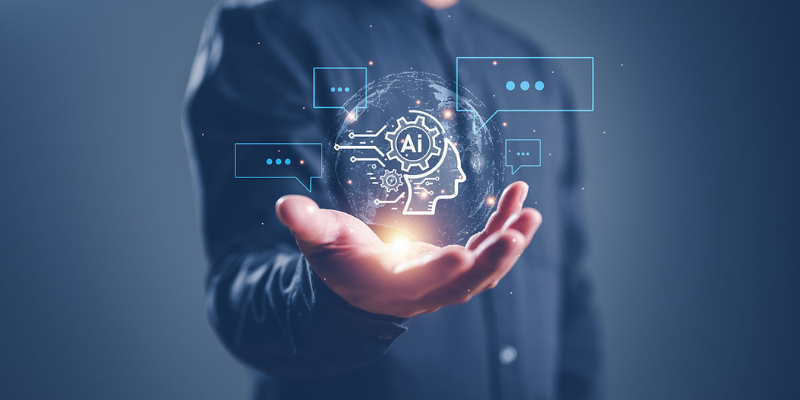Human Resources has always played a crucial role in building strong teams and shaping company culture. But with growing responsibilities and increasing employee expectations, HR professionals need smarter tools to stay efficient and strategic. This is where Artificial Intelligence (AI) is stepping in to make a meaningful impact.
From recruitment and onboarding to performance tracking and employee engagement, AI is helping HR teams work faster and more accurately. It's not just about automation—it’s about transforming data into insights and creating a better experience for both employees and employers. If you’re looking to understand these changes and use them to your advantage, taking an Artificial Intelligence course in Chennai can give you the right skills to adapt. As AI continues to influence HR practices, staying updated will keep you ahead in your career.
Transforming Recruitment with Smart Algorithms
Hiring the right person is no easy task. Manually sorting through resumes, scheduling interviews, and coordinating with managers takes a lot of time. AI tools are now simplifying this process. They scan resumes, analyze keywords, and match candidates to job roles in seconds.
Imagine having a digital assistant that filters out top candidates based on experience, skills, and job fit. AI even uses natural language processing (NLP) to understand candidate profiles more deeply. Some companies also use AI-driven video interviews that assess tone, facial expressions, and confidence.
AI also removes unconscious bias during the screening process. Since these systems are trained to focus on qualifications and data points, it brings more fairness and diversity into hiring.
Improving Onboarding and Employee Learning
Once a candidate is hired, the next big step is onboarding. This is another area where AI can shine. Chatbots and AI systems can guide new employees through company policies, help them get familiar with tools, and answer common queries—all without depending on HR staff 24/7.
But it doesn’t end there. AI creates personalized learning experiences based on each employee’s strengths, job requirements, and goals. For instance, if an employee needs to improve leadership skills, the system can recommend specific online modules or workshops suited for them.
Many HR professionals are now learning to implement AI-driven learning management systems. Enrolling at a Training Institute in Chennai that offers hands-on AI training for workplace applications can help you build and manage these intelligent systems effectively.
Enhancing Engagement and Retention with Data Insights
A motivated workforce is the backbone of any successful organization. AI helps HR teams track engagement levels through sentiment analysis, survey results, and performance data. Instead of waiting for issues to surface, HR can act proactively.
Let’s say a department has a sudden drop in productivity. AI tools can analyze internal communication patterns and feedback to identify causes like burnout or lack of recognition. This enables HR to respond with personalized support—maybe a team-building activity, flexible scheduling, or wellness resources.
With these real-time insights, companies can prevent employee turnover and build a healthier work culture. It’s no surprise that HR teams trained in AI analytics are becoming valuable strategic partners in many organizations.
Making Smarter Workforce Decisions
AI tools offer predictive analytics that help HR professionals make informed decisions about the future workforce. From forecasting hiring needs to predicting attrition rates, AI provides data-backed suggestions that reduce guesswork.
For example, if AI systems notice a pattern that employees with certain backgrounds tend to leave within six months, HR can refine its hiring strategy accordingly. Similarly, performance data can help identify potential leaders early and design growth plans for them.
These tools not only make HR departments more efficient but also help them contribute to larger business goals. In short, AI gives HR the power to be proactive, not reactive — but as organizations adopt these technologies, they must also address the ethical considerations in AI development to ensure fairness, transparency, and accountability in their HR practices.
Reducing Administrative Load with Automation
Administrative work is necessary but often eats up too much HR time. Tasks like payroll management, leave tracking, and updating employee records can now be automated using AI. This leads to fewer errors and more accuracy.
AI-powered virtual assistants can also manage internal queries like “How many leaves do I have left?” or “What’s the company’s travel policy?”—saving HR time and improving employee satisfaction.
With automation handling routine work, HR professionals can focus more on strategy, innovation, and people development. It’s all about working smarter, not harder.
Moving Forward with Smarter HR Strategies
AI is no longer just an option in HR—it’s becoming a necessity. From hiring and onboarding to engagement and decision-making, artificial intelligence is transforming every step of the employee journey. HR departments that embrace these tools can work faster, reduce bias, and build a more connected workforce. Drawing inspiration from the rapid progress of AI in robotics, HR is adopting intelligent automation to enhance accuracy, efficiency, and employee satisfaction across all functions.
However, using AI effectively requires more than just knowing the tools. It demands a good understanding of how to apply them in real-world HR settings. That’s why professionals looking to stay ahead are investing in AI education.

